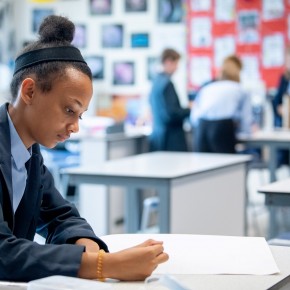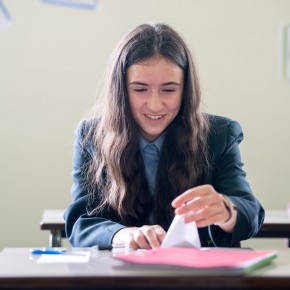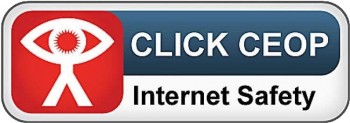Sex and Relationship Education
Policy Rationale and Framework
Sex and Relationships Education in the school is firmly rooted in the Philosophy and Ethics curriculum, which reflects the national framework for PSHE and the linked Department for Education guidance.
The programme is designed to help and support students through their physical, emotional and moral development, moving with confidence through adolescence to emerging adulthood.
It has three main elements:
Attitudes and values
- Learning the importance of values and individual conscience and moral considerations
- Learning the value of family life, marriage, and stable and loving relationships for the nurture of children
- Learning the value of respect, love and care
- Exploring, considering and understanding moral dilemmas
- Developing critical thinking as part of decision-making.
Personal and social skills
- Learning to manage emotions and relationships confidently and sensitively
- Developing self-respect and empathy for others
- Learning to make choices based on an understanding of difference and with an absence of prejudice
- Developing an appreciation of the consequences of choices made
- Managing conflict
- Learning how to recognise exploitation and abuse
- Learning and understanding physical development at appropriate stages
- Understanding human sexuality, reproduction, sexual health (including sexually Transmitted infections and HIV/AIDS), emotions and relationships
- Learning about contraception and the range of local and national sexual health advice, contraception and support services
- Learning and understanding the reasons for delaying sexual activity, and the benefits to be gained from such a delay
The avoidance of unplanned pregnancy
Aspects of Sex and Relationships Education also arise for all students in Science (e.g. reproduction, transmission of disease) and this complements the Philosophy and Ethics programme.
Teaching Approach
Guidelines for teaching ensure that:
- The physical aspects of sexual behaviour are set within a normal framework which stresses the importance of self-restraint, dignity and respect for oneself and others
- The physical, emotional and moral risks of casual and promiscuous sexual behaviour are made clear
- Controversial issues are handled in a balanced and reasoned manner
- Responsibility in sexual matters is seen as the concern of both sexes equally
- The importance of parenthood and stable, family life are emphasised
- While seeking to preserve the dignity of students who do not have personal experiences of these circumstances
Confidentiality
If a member of staff receives information which indicates that a child protection issue needs to be addressed he/she should refer the information to the Lead Designated Professional for Child Protection. It is made clear to the student that confidentiality cannot be guaranteed, if they or anyone else are at risk or harm. Please see our Safeguarding Policy.
Parents
Parents have the right to withdraw their child from all or part of the school’s sex education programme.
Review and Evaluation
The programme and teaching materials are reviewed annually by the head of Philosophy and Ethics teaching team and the policy is reviewed biennially by the Governing Body.








